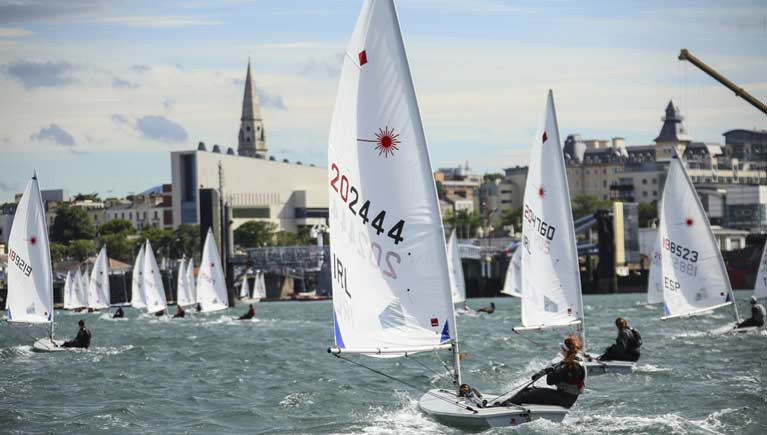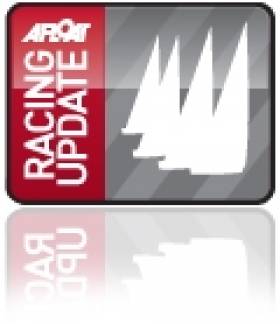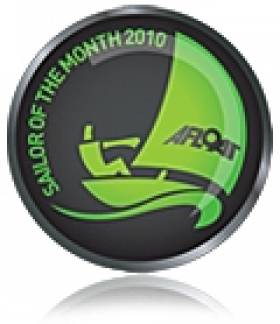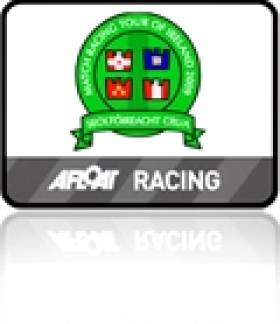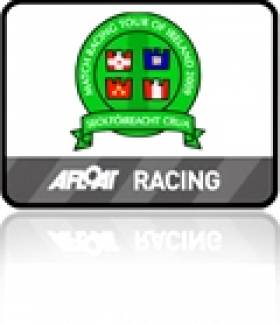Displaying items by tag: Prof O'Connell
Olympic and International coach Maurice "Prof" O'Connell will be running Laser racing coaching sessions in Dun Laoghaire Harbour this week starting on Tuesday, May 26th.
The format will be some short sharp boat handling sessions, in four boat groups, followed by four to five short races including some practice starts.
Fun racing will be the theme with the aim of sharpening everyone's skills for when full-on racing resumes, according to the Prof.
Video analysis will be used and shared afterwards using Dropbox/Google Drive.
Here's a video clip of a Laser Radial start with coach Prof below:
The Schedule
- Tues 26th May 6 pm - 9 pm and
- Wed 27th May 10 am - 1 pm and 6 pm - 9 pm
The Venue
will be Dun Laoghaire Harbour - meet in the centre, off the ferry terminal.
Full rigs, radial rigs, 4.7's, masters, apprentices, juniors - all are welcome!
If there is sufficient demand, more sessions will be planned and Prof will group/stream the sessions appropriately if numbers grow.
The fee for the three-hour session will be €40 payable to Prof directly. Whatsapp / SMS him on 086 236 4200 to arrange pre-payment.
Irish Melges 24 Sailors Lead Key West Race Fleet in Florida
#keywestraceweek – Irish skipper Conor Clarke and his crew on Embarr posted a pair of bullets to seize the early lead in Melges 24 class, which has attracted 13 entries. Texas skipper Steve Rhyne, who has Mojo in second place after putting up a fourth and a second, said the Dublin-based Embarr had an extra gear when going downwind.
"We started well today and I thought we had good upwind speed, but we had a little trouble on the runs," said Rhyne, who has previously raced a J/109 and Melges 32 here in Key West. "We're new to the class and still figuring out the best way to sail the boat."
Clarke told Afloat.ie "Key West was good to us today. Two races in fairly light shifty conditions and we won both of them to lead overall. The result flatters us because we fought hard in each race and it's clear that a number of boats will be presenting a serious challenge this week.
In race 1 we started well and went left at first but realised that boats on the right were making better ground so we crossed to cover. There was a ding dong battle with Mojo most of the way.We rounded the top mark in first but closely followed by Zingara and Mojo. Tricky downwind tactics and ginger movements on board left us rounding with the Canadians on Zingara but having split tacks with them upwind we had some great tactical calls from Huzie and Stu and also great speed allowing us drag away from them to lead into the last leg and also extend our lead to the finish.
Race two was a different story. We fluffed the start and ducked the fleet on port tack to get out into clear air from the back of the pack. We were pushed right and away from where we wanted to be. Eventually we took our first opportunity to go right and for a while looked as if we were in very poor shape indeed. I looked like we might be well into the second half of the fleet but slowly we noticed that our call to get left was going to pay off and the boats out to the right started to fall back. We rounded the top mark in a close 3rd and managed to dig our nose into a slot to windward of the lead boats, Tramp and Mojo. From there we were able to get a tad lower with speed and direct events from there. It was more nervy than it sounds but we managed to round the leeward mark in first and, again, more nervily than it sounds, extended our lead from there to the finish.
A really good days work but we have much more to do. 4 more days to defend our position"
There is no better sight than a steady stream of racing boats either sailing or motoring out of the Historic Seaport harbor around 10 a.m. on Monday. That's a sure sign that the annual race week held off Key West is starting on time and with enough wind to get the regatta underway.
Quantum Key West Race Week 2015 got off to a strong start with the principal race officers on all three divisions able to complete two good races in 8-14 knot northeasterly winds.
"It was a good day of racing. Conditions were ideal and the courses were good," said Hap Fauth, skipper of the mini maxi Bella Mente.
Fauth had reason to be happy as Bella Mente was atop the standings in IRC 1 after the opening day of action. Tactician Terry Hutchinson played the shifts well as the Judel-Vrolijk 72-footer posted results of first and second.
"Terry did a good job of putting us in sync with the puffs and our maneuvers were good," said Fauth, who is breaking six new sailors into his crew of 18.
Hutchinson wasn't happy about losing the lead in Race 1 as Bella Mente sailed into a patch of choppy air, which allowed the 66-foot Numbers to win on corrected time. Bella Mente must beat Numbers, which is being chartered by Florida resident Gunther Buerman, by just over three minutes in order to save its time over the smaller boat.
It was a very good day on the water for skipper William Coates and his crew aboard Otra Vez. The Ker 43 leads both IRC 1 and the High Performance Rule sub-class after getting two good starts and displaying superb upwind speed.
"We have a good boat with a great crew and we did a lot of preparation to get ready for this regatta," said Coates, a resident of Houston, Texas.
Otra Vez made its debut at Quantum Key West 2014 and Coates said the program got better as the year went along, capturing class honors at the New York Yacht Club Annual Regatta. Mike Buckley, an All-American sailor at Washington College, is calling tactics for Coates.
"This boat was designed for IRC racing, which is why we're kind of surprised to being doing well in HPR," Coates said. "Our motto is never give up. We were really deep in that second race and gained it all back on the last lap just by staying in phase with the shifts and puffs."
Skipper Jason Carroll and the boys aboard Argo are the early pace-setters in the GC 32 class, which is making its debut in Key West. Winds weren't quite strong enough for the high-performance catamarans to foil upwind, but they were easily able to rise out of the water going downwind. Cameron Appleton, tactician for Alex Jackson on Leenabarca, said staying up on the foils downwind and flying a hull upwind make all the difference in this class.
"This is the first time we've ever sailed the boat and the learning curve is steep," Appleton said. "In relatively light and fickle conditions like we had today, it's tricky to keep the boats moving at top speed. We made improvement from Race 1 to Race 2 so that's a positive."
Appleton, who has competed in just about every monohull class out there, said succeeding in getting these state-of-the-art catamarans into perfect sync is quite rewarding. The GC 32 is capable of reaching speeds of 35 knots while foiling downwind. "These boats are quite sporty and it's very exciting sailing," he said.
Bermuda skipper Alec Cutler got off to a good start in his bid to repeat as Melges 32 class champion. Cutler, who has Canadian professional Richard Clarke calling tactics, placed second in both races on Monday.
J/70 is the largest class in the regatta with 54 boats and the goal going into the first day was to avoid that deep finish that could prove costly. "You can't win the regatta on Monday, but you sure can lose it," Heartbreaker skipper Robert Hughes said. "You don't want to sail your drop race on the first day."
After finishing 11th in Race 1, San Diego skipper Bennett Greenwald got the gun in Race 2 and is the early leader while also earning City of Key West Boat of the Day honors. Hughes, who trails Greenwald by three points and leads Carlo Alberini (Calvi Network) by one, had a similar day with results of 13th and second. In fact, the top five boats on Monday all had one result of fifth or better and another result of 11th or higher.
"We almost had a great day," said Hughes, who lost seven places on the final leg of Race 1. "I'm pleased with our speed. We have new sails and have made some changes to the rig setup. This is the best this boat has ever gone."
Red is another boat that returned to the dock on Monday afternoon as the leader in two classes. British skipper Joe Woods corrected to first place in both races within PHRF 1 and thus also leads the Farr 280 sub-class.
"It's an interesting and tricky boat to sail. It's a 28-footer that feels bigger," said Woods, who previously raced a Melges 24 in Key West and has just three days of practice under his belt aboard the Farr 280.
Gerry Taylor captured class honors at Quantum Key West 2013, but had to miss last year's regatta due to work commitments. The Annapolis resident and his team on Tangent picked up right where they left off two years ago, winning both races in PHRF 2 on Monday.
Skipper Iris Vogel steered Deviation to victory in both races within J/88 class while fellow New York resident Robert Hesse is the early leader in J/111 after notching finishes of first and fourth.
John Sheehy is October's Sailor of the Month
John Sheehy of Dun Laoghaire is the latest Afloat.ie/Irish Independent "Sailor of the Month" after his convincing recovery to retain his title as National Match Racing Champion in Kinsale on October 24th.
Recovery and retention became the theme of a hotly-fought series, as Sheehy had seemed to be off form on the opening day, far from overnight leader, in the doldrums way back in fourth. Things were still rocky on the second day as they battled on all fronts to stay in contention after taking a beating from Ben Duncan of Howth, who seemed on track to be the new champion.
But Sheehy and his crew sailed off on their own for a brief onboard motivation session. He had a crew of all the talents in Darragh O'Connor, Paddy Kirwan and Marty O'Leary and they returned to the fray fired up on all cylinders to go into the final series with eight wins, while Duncan had nine.
However, by this stage there was no stopping the John Sheehy onslaught. He clinched two more excellent starts and retained the lead despite ferocious pressure in both matches from Ben Duncan, who was clear second overall, while Sam Hunt was third, narrowly ahead of Prof O'Connell.
Match Racing Day One Video: Prof on Top in Kinsale
Prof O'Connell topped the leader board at the end of the first round round robin stage of the Irish Match Racing Championships in Kinsale. (VIDEO BELOW) Sam Hunt and the Royal St George Gladiators are next and in an unexpected turn of events the defending champion, John Sheehy from Dun Laoghaire, has yet to shine.
John has dominated match racing in Ireland for the last couple of years and is the defending National and Irish Match Racing Tour champion.
For the first couple of flights it looked to be business as usual but then he ran up against Ben Duncan and Mad Match Racing. A first loss lead to second and then a third leaving the event wide open.
A second round robin started late today and will compete tomorrow before a best of 3 race finals. Any one of 5 teams still in with a shot of the title.
As an extra feature of the event the Irish Match Racing team have prepared the following vidcasts from Kinsale:
Local helmsman George Kingston describes his match
Umpires describe events on the water
Andrew Deakin (left) and Brian Carlin describe events on the water
Vidcast by Brian Carlin
Day One Videos from Irish Match Racing Nationals
The Match Racing National Championships are underway in Kinsale this afternoon and we're on the water to bring you vidcasts from competitors at the Round Robin stage. Click read more and listen into George Kingston, Prof O'Connell and Aidan McLaverty.
Vidcasts by Brian Carlin



























